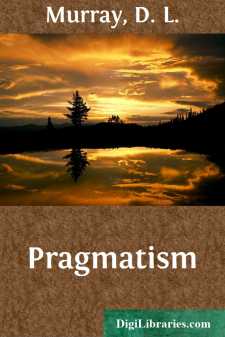Categories
- Antiques & Collectibles 13
- Architecture 36
- Art 48
- Bibles 22
- Biography & Autobiography 816
- Body, Mind & Spirit 145
- Business & Economics 28
- Children's Books 18
- Children's Fiction 14
- Computers 4
- Cooking 94
- Crafts & Hobbies 4
- Drama 346
- Education 58
- Family & Relationships 59
- Fiction 11831
- Foreign Language Study 3
- Games 19
- Gardening 17
- Health & Fitness 34
- History 1378
- House & Home 1
- Humor 147
- Juvenile Fiction 1873
- Juvenile Nonfiction 202
- Language Arts & Disciplines 89
- Law 16
- Literary Collections 686
- Literary Criticism 179
- Mathematics 13
- Medical 41
- Music 40
- Nature 179
- Non-Classifiable 1768
- Performing Arts 7
- Periodicals 1453
- Philosophy 66
- Photography 2
- Poetry 897
- Political Science 203
- Psychology 45
- Reference 154
- Religion 516
- Science 126
- Self-Help 86
- Social Science 82
- Sports & Recreation 34
- Study Aids 3
- Technology & Engineering 59
- Transportation 23
- Travel 463
- True Crime 29
Our website is made possible by displaying online advertisements to our visitors.
Please consider supporting us by disabling your ad blocker.
Pragmatism
by: D. L. Murray
Description:
Excerpt
CHAPTER I
There is a curious impression to-day in the world of thought that Pragmatism is the most audacious of philosophic novelties, the most anarchical transvaluation of all respectable traditions. Sometimes it is pictured as an insurgence of emotion against logic, sometimes as an assault of theology upon the integrity of Pure Reason. One day it is described as the reckless theorizing of dilettanti whose knowledge of philosophy is too superficial to require refutation, the next as a transatlantic importation of the debasing slang of the Wild West. Abroad it is frequently denounced as an outbreak of the sordid commercialism of the Anglo-Saxon mind.
All these ideas are mistaken. Pragmatism is neither a revolt against philosophy nor a revolution in philosophy, except in so far as it is an important evolution of philosophy. It is a collective name for the most modern solution of puzzles which have impeded philosophical progress from time immemorial, and it has arisen naturally in the course of philosophical reflection. It answers the big problems which are as familiar to the scientist and the theologian as to the metaphysician and epistemologist, and which are both intelligible and interesting to common sense.
The following questions stand out: (1) Can the possibility of knowledge be maintained against Hume and other sceptics? Certainly, if it can be shown that 'The New Psychology' has antiquated the analysis of mind which Hume assumed and 'British Associationism' respectfully continued to uphold. (2) Seeing that inclination and volition indisputably play a part in the acceptance of all beliefs, scientific and religious, what is the logical significance of this fact? This yields the problem 'The Will to Believe,' and more generally of 'the place of Will in cognition.' (3) Is there no criterion by which the divergent claims of rival creeds and philosophies—to be possessed of unconditional truth—can be scientifically tested? The sceptic's sneer, that the shifting systems of philosophy illustrate only the changing fashions of a great illusion about man's capacity for truth, plunges dogmatism into a 'Dilemma,' from which it can emerge only by finding a way of discriminating a 'truth' from an 'error,' and so solving the 'problem of Truth and Error.' The weird verbalism of the traditional Logic suggests a problem which strikes deeper even than the question, 'What do you mean by truth?' viz.: 'Do you mean anything?' and so the 'problem of Meaning' is propounded by the failure of Formal Logic. Is Logic not concerned at all with meaning, is it only juggling with empty forms of words? Lastly, if from all this there springs up a conviction of 'The Bankruptcy of Intellectualism,' the question suggests itself whether the relation between abstract thinking and concrete experience, between 'Thought' and 'Life,' has been rightly grasped. Is life worth living only for the sake of philosophic contemplation, or is thinking only worth doing to aid us in the struggle for life?...


